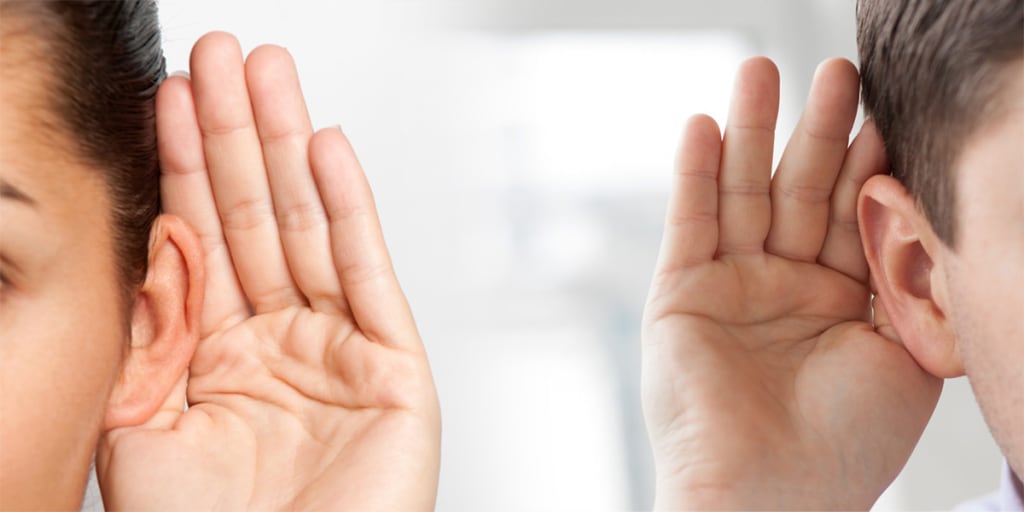How to Become a Better Listener: 10 Simple Tips
Top ten simple tips on how to become a better listener

We've all been there before- someone is talking to us, but we're not really listening. Maybe our minds are elsewhere, or we're just waiting for our turn to speak. But being a good listener is an important skill to have, both in our personal and professional lives. Good listeners are better able to build relationships, resolve conflicts, and communicate effectively.
So how can you become a better listener? Here are my ten simple tips, and if you would like to read more about my work, feel free to check my agency.
1. Pay attention
This may seem obvious, but it's essential to focus on the person speaking to you. Make eye contact and keep your body language open. Put away any distractions, like your phone or laptop. And try to avoid letting your mind wander.
For example, the next time you're in a conversation, focus on what the other person is saying. Try to make sense of their words and follow their train of thought.
2. Show that you're interested
Let the person know that you're listening by nodding your head, smiling, and making occasional comments or questions. This shows that you're engaged in the conversation and encourages the other person to keep talking.
For example, if someone is telling you about their weekend, you could say something like, "That sounds like a lot of fun!" or "I'm sorry to hear that."
3. Be patient
Don't interrupt the person who is speaking, even if you think you know what they will say. Instead, wait until they're finished before you respond. This can be difficult if you're eager to jump in with your thoughts, but it's essential to respect the other person's turn to speak.
For example, the next time you're in a conversation, see if you can let the other person finish their thoughts without interruption. If you must say something, try rephrasing what they've said to make sure you understand them before responding.
4. Don't just listen with your ears- listen with your eyes and body as well
In addition to paying attention to the words being said, also pay attention to the speaker's body language and tone of voice. This can give you important clues about their thoughts or feelings.
For example, the next time you're in a conversation, see if you can pick up any nonverbal cues from the other person. Do they seem tense or nervous? Are they relaxed and open? What does their body language say about what they're saying?
5. Try to understand the other person's point of view
Even if you disagree with what the other person is saying, it's essential to try to see things from their perspective. This can help you to empathize with them and find common ground.
For example, the next time you're in a conversation, try to put yourself in the other person's shoes. What might be driving their opinion? What experiences do they have that you don't?
6. Don't just wait for your turn to talk
Many people tend to think about what they'll say next while the other person is speaking. But this means that you're not listening to them. Instead, focus on what they're saying and hold off on formulating your response until they're finished.
For example, the next time you're in a conversation, see if you can focus your attention on the other person and what they're saying. Rather than thinking about what you want to say next. If you find your mind wandering, try to bring it back to the conversation.
7. Avoid making assumptions
Please don't assume that you know what the other person will say or what they mean. This can lead to misunderstandings and conflict. Instead, please wait until you've heard them out before jumping to conclusions.
For example, the next time you're in a conversation, try to avoid assumptions about what the other person is saying. If you're not sure, ask them to clarify.
8. Ask questions
If you're unsure about something, or you want to clarify something, ask a question. This shows that you're interested in understanding the other person's point of view. And it can help to prevent miscommunication.
For example, the next time you're in a conversation, see if you can ask at least one question. This will help to keep the conversation flowing and ensure that everyone is on the same page.
9. Repeat back what you've heard
This is an excellent way to check that you've understood the other person correctly. It also shows that you were paying attention and interested in what they had to say.
For example, the next time you're in a conversation, try repeating what you've heard to the other person. This will help ensure that you're both on the same page and avoid misunderstandings.
10. Be respectful
Even if you disagree with the other person, it's essential to respect their opinion. Avoid being judgmental or condescending. Instead, try to have an open mind and a respectful conversation.
For example, the next time you're in a conversation, see if you can avoid being judgmental or condescending towards the other person. Instead, try to be respectful and open-minded. This will help to create a more positive and productive conversation.
By following these simple tips, you can become a better listener and improve your communication skills. Good listening is an essential skill in both our personal and professional lives. So make an effort to be a better listener today!
Do you have any tips on how to become a better listener? Please share them in the comments below!
If you enjoyed reading this story and would like to read more, feel free to check out our government marketing agency.
About the Creator
Bakir Djulich
Marketing specialist at www.amraandelma.com | NFT/Crypto/Metaverse enthusiast | Avid gamer






Comments
There are no comments for this story
Be the first to respond and start the conversation.